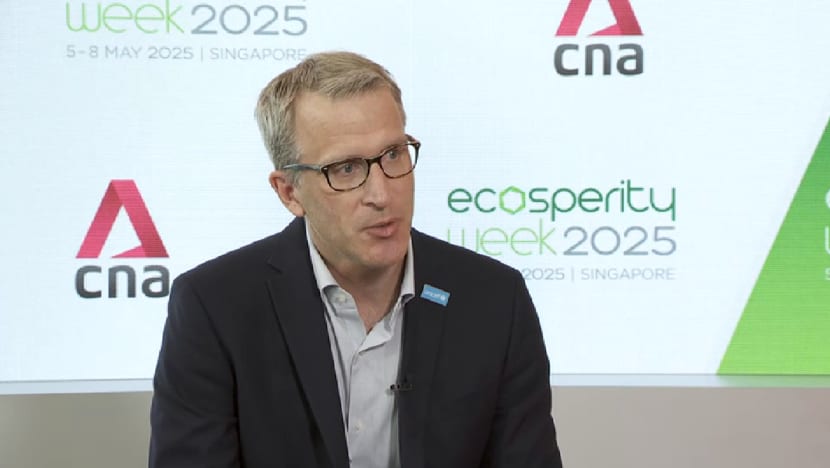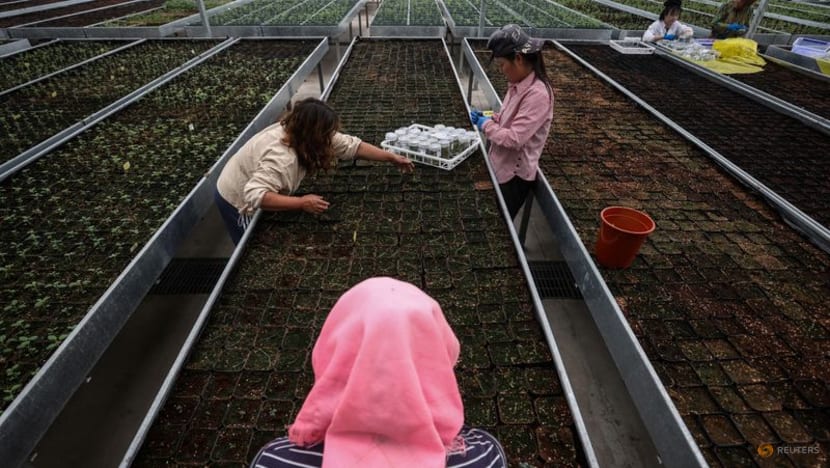UNICEF warns of climate change worsening child malnutrition in Asia
Roland Kupka, UNICEF's regional nutrition adviser for East Asia and the Pacific, shared the need to strengthen the financing of aid programmes.

Climate change is worsening malnutrition in Asia, with young children bearing the brunt of increasingly fragile health and food systems, said the United Nations children’s agency’s regional nutrition adviser for East Asia and the Pacific.

This audio is generated by an AI tool.
SINGAPORE: Climate change is worsening malnutrition in Asia, with young children bearing the brunt of increasingly fragile health and food systems, said the United Nations children's agency UNICEF.Â
Despite rapid development in the region, many children are still not getting the nutrition they need, UNICEF’s regional nutrition adviser for East Asia and the Pacific Roland Kupka told Â鶹´«Ă˝ on Tuesday (May 6).
“Climate change is putting pressure on health systems. It is increasing the prevalence of infections, which drain children's bodies of vital nutrients,” he said at the sidelines of Ecosperity Week, an annual sustainability event hosted by Temasek.
“At the same time, climate change is impairing food systems. So we see decreases in the quality (and) quantity of food, and all that makes it very clear that it's hard to talk about climate action without putting children, as well as children's nutrition, at the centre of those efforts.”
ENDING CHILD HUNGER
Kupka stressed that the nutrition crisis in Asia is becoming increasingly urgent, where about 19 million children are “chronically undernourished”.
Malnutrition, which is an imbalance between the nutrients one’s body needs to function and the nutrients it receives, can significantly stunt children’s physical and brain development, he added.Â
“We also see that deficiencies in vitamins and minerals are still very common, and at the same time, we see that more and more children are overweight and obese.Â
“So I think really what we need to make sure is that children have access to the right diets, the right services and to the right practices, and that we support governments to put in place the right policies and programmes to address these forms of malnutrition.”
Kupka said the financing of aid programmes is one of the biggest hurdles in tackling malnutrition.
He noted that there is a need for "mechanisms" that can assess various financing needs and incentivise the production of certain nutritious food in settings where they are needed.Â
UNICEF, for instance, has introduced the Child Nutrition Fund to quicken the scaling up of sustainable policies, programmes and supplies to end child undernutrition, said Kupka.Â
“We feel that that has real promise to address malnutrition in this region, as well as in other regions.”

GOVERNMENT ACTION
He also called on governments to take greater measures to close Asia’s nutrition gap, noting that they are at the core of change to implement effective policies.
“I think it's the duty of governments to watch out for the rights of their citizens, to put in place the policies and the programmes,” he added.Â
“But governments cannot do it alone, and that's where I feel philanthropists can come in — they have the freedom, the speed, the agility to try out new things, new models that can then be taken over by governments later.”
When asked how Asia can build better climate resilience and food security, Kupka said the region can “avoid a lot of mistakes that were made in other parts” of the world. These include failing to adapt practices to withstand increasingly extreme weather conditions
“We can combine this with a quest for innovation that this region has… and really lead the way in the whole world when it comes to climate action, as well as areas such as child nutrition,” he added.Â











